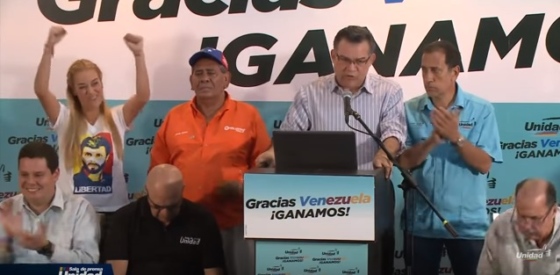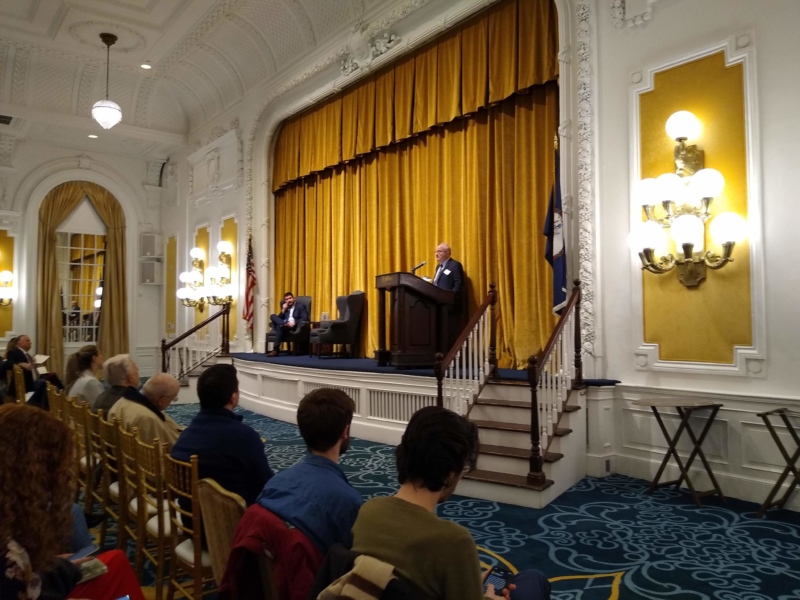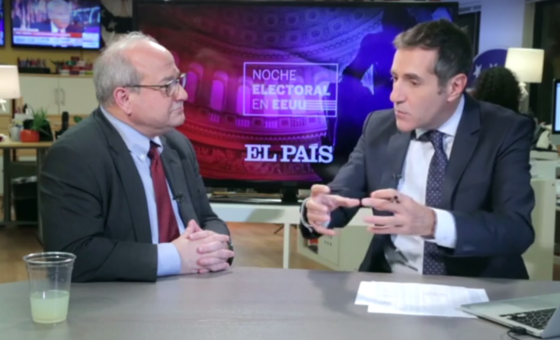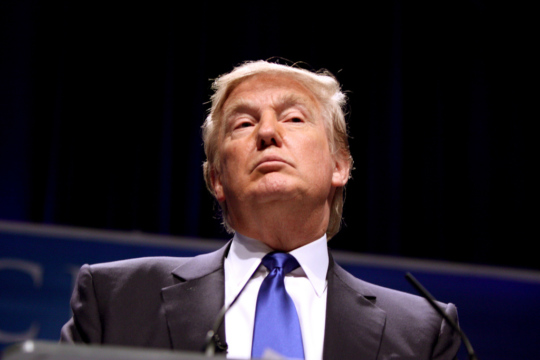
What Does the Future Hold for Venezuela?
What do the election results mean for President Nicolás Maduro and his grip on the presidency?
The Richmond World Affairs Council held on January 30 a public event on the current crisis in Venezuela, its authoritarian legacy and the US policy toward the country. Michael Shifter and David Smolansky were the featured speakers.
Venezuela was once one of the richest countries in Latin America. After the death of Venezuelan President Hugo Chávez in 2013, he not only left an authoritarian legacy, but his economic policies had become unsustainable.
Venezuela is now home to an economic and humanitarian crisis, including civil unrest, hyperinflation, food shortages and lack of medical supplies. President Nicolas Maduro was re-elected in 2018 but the poll was widely dismissed as rigged. National Assembly leader Juan Guaidó labeled Mr. Maduro a “usurper” and declared himself interim president in January 2019. The United States and many other countries back Juan Guaidó, but they are at odds with Russia and China’s competing regional interests, and the military has remained loyal to Mr. Maduro.
"In 1980, the problem was that Chávez came in and made all the decisions. He was systematically dismantling the democratic institutions and concentrating power in his own hands. This resulted in high levels of incompetence, corruption, and mismanagement that we see today. He was very antagonistic toward the private sector. 95 percent of Venezuelan exports are oil. Chavez promised to change it, but he never could."
"Obama’s vision started what today is the key policy towards Venezuela - sanctions. But it only targeted individual sanctions for those accused of corruption and human rights violations. Trump comes in and takes a harder line against Maduro. I think a very aggressive approach rhetorically and also in policy. He expanded and strengthened the sanctions regime, increase the targeted sanctions, then imposed financial sanctions, and a year ago sectoral sanctions in the oil sector. Today, this is the principal instrument against Maduro, together with diplomatic isolation on the Maduro regime."
"There is a lot of skepticism that negotiations are viable. They have been tried, and have failed because the government is not acting in good faith. Today, we have a very difficult moment. President Guaidó, by all counts, is less important than he was a year ago because the change that was promised wasn’t delivered. Maduro is still in office. He is the most popular politician in Venezuela, with the support of 40 percent of the Venezuelans."
"The sanctions have not worked over the last year. The Maduro regime has been more resilient than many people expected. Maduro has adapted to these tough economic sanctions. Russia is playing a decisive role. Maduro has China, Turkey, and Cuba by his side. There has also been an expansion of illicit economies such as drug trafficking, illegal armed groups, and illegal gold mining."
"I think military action will not happen, and should not happen. We also need to get more actors involved. This is a global issue. The political conditions are going to take time, and nobody knows what it is going to work yet. The right mix of sanctions, sticks, pressures plus guarantees and some incentives may help lead towards democratic elections."
"I hope that in this year, 2020, the United States adopts more policies to help transition Venezuela to democratic elections. This is also a domestic issue, especially in the state of Florida. I hope the different politics don’t shape the kind of decision made by the administration. South Florida has a high concentration of Cubans. South Florida is a swing state."
"Venezuela is desperate to be saved from Hugo Chávez's legacy."
"The geopolitical interest has changed in the last year. Russia is involved very much in helping Maduro with the oil economy. State-owned enterprises have played a very important role in sustaining Maduro. Russia is a key player, and this is not something that I would have said two years ago. In 2020, it is a reality and there are no signs that they are going to pull back. US officials have tried to engage in conversations with the Russians, but they have not been successful. So, [Russian intervention] is a major concern these days."
What do the election results mean for President Nicolás Maduro and his grip on the presidency?
Michael Shifter es entrevistado por Carlos de Vega, periodista para El País, en la noche de las elecciones presidenciales en EEUU. Con unos resultados cada vez más evidentes hacia la victoria de Donald Trump, Michael y Carlos analizan las razones de su éxito, las posibles políticas de Trump en la Casa Blanca y lo que se puede esperar de este presidente electo para América Latina.
Will President-elect Trump shatter America’s most important bilateral relationship?
 Richmond World Affairs Council
Richmond World Affairs Council

